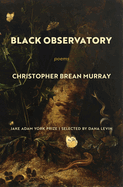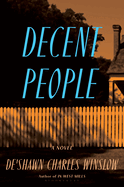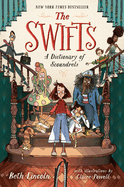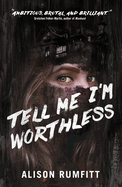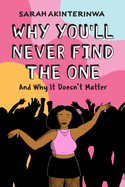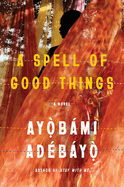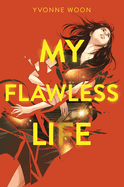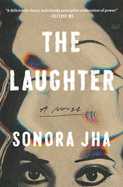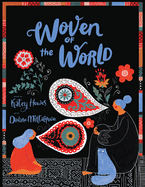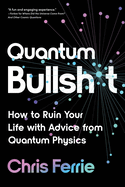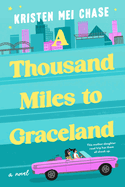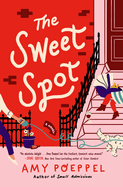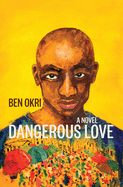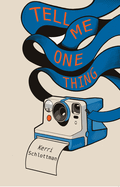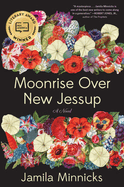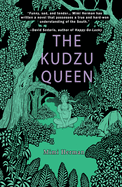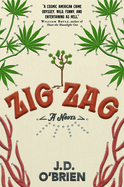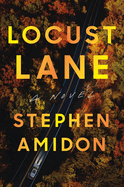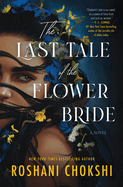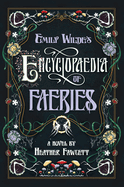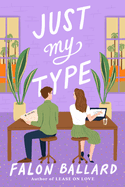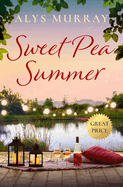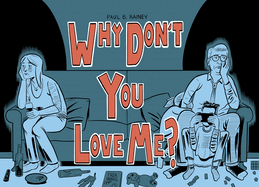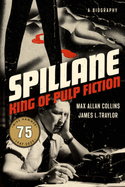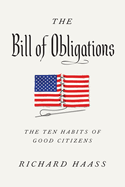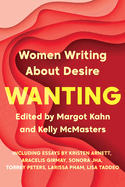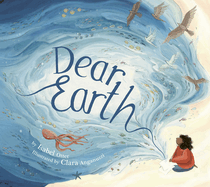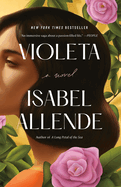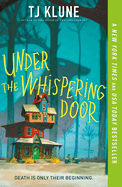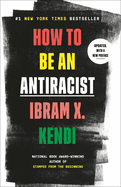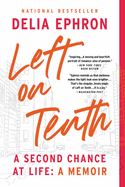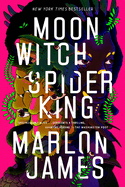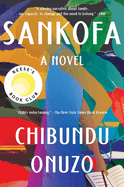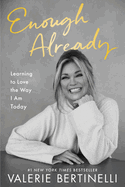Friday, February 17, 2023
In this week's issue, we review Christopher Brean Murray's debut poetry collection, Black Observatory, winner of the 2021-22 Jake Adam York Prize--"its strikingly surreal imagery fashions situations by turns ridiculous and terrifying"; De'Shawn Charles Winslow takes readers back to West Mills in his "splendid" second novel, Decent People, a mystery in which "there's a lot more at stake than finding a murderer"; and Beth Lincoln's The Swifts, a "quippy and charming debut with beguiling illustrations" by Claire Powell. Plus so many more!
The Creative Life showcases a conversation between bestselling children's authors Grace Lin--winner of the 2022 Children's Literature Legacy Award--and Kate Messner, the illustration that inspired the seeds of a story, and the way their collaboration for Once Upon a Book unfolded.
Decent People
by De'Shawn Charles Winslow
As far as endearing, small-town amateur elder sleuths go, Agatha Christie's Miss Marple has some competition in Josephine "Jo" Wright, who features in De'Shawn Charles Winslow's splendid second novel, Decent People, a mystery in which there's a lot more at stake than finding a murderer. It's March 1976 as the novel begins, and 60-year-old Jo has just returned to her home on the "Black side" of West Mills, N.C., after two weeks away. There's news, and not the good kind: her fiancé, Olympus "Lymp" Seymore, is suspected of fatally shooting his three half-siblings--the Harmons, as they're known--in the stately home the three of them share. Unfortunately for Lymp, someone overheard the heated remarks he made about his half-siblings just prior to the murders. While Jo's hunger for justice compels her to look for the killer, she privately concedes another motive: finding the perpetrator would reassure her that it's not Lymp.
Decent People revisits the turf and several characters that Winslow introduced in his debut novel, In West Mills. This time around, he hands off the novel's point of view to various characters, white and Black, who--for reasons of their own--had issues with the Harmons. In so doing, he both fortifies his mystery and tells these characters' stories, all of which intersect and are tainted by the triple scourge of racism, classism and homophobia. It's fair to say that in West Mills, the canal, which acts as a color line, courses with bad blood in both directions. --Nell Beram, author and freelance writer
Discover: There's a lot more at stake than finding a murderer in De'Shawn Charles Winslow's splendid second novel, a mystery set in 1976 in racially charged small-town North Carolina.
A Spell of Good Things
by Ayọ̀bámi Adébáyọ̀
In A Spell of Good Things, the strong and intricate second novel by Ayọ̀bámi Adébáyọ̀, the fates of two Nigerian families are incrementally braided together into a treacherous social fabric.
Wúràọlá is an overworked medical student whose professional career has been undeniably boosted by her ongoing relationship with the brash and unpredictable Kúnlé, whose parents are highly respected professors in the medical community, and whose father intends to run for political office. Ẹniọlá is a resourceful schoolboy whose family has recently fallen into severe financial instability. They cannot afford food, let alone pay his private school dues and his apprenticeship fees at a nearby tailoring shop, the vocation that may be his only saving grace if academics fail him--but only if he can resist the allure of fast-money schemes in the meantime.
That shop forms an intersection between these social strata once Wúràọlá enters with her mother in search of formal dresses for the auspicious occasions mounting on their family's horizon. But as Wúràọlá is scolded for having gotten so old without marrying, and as Ẹniọlá's poverty becomes more desperate, the pressure to seize the day rains down impossible dilemmas upon them both, in a setting where "every day is for the thief" (to quote fellow Nigerian author Teju Cole, as Adébáyọ̀ does).
If her first novel, Stay with Me, was a tightly wound domestic drama about a marriage in crisis, this one stretches mightily across class boundaries to illustrate persistent limits on social mobility. Her prose is sumptuous and narrative style enthralling. A Spell of Good Things is an apt title for Adébáyọ̀'s work thus far. --Dave Wheeler, associate editor, Shelf Awareness
Discover: In this excellent second novel, two Nigerian families face incredible dilemmas as social pressures weigh more and more heavily upon them.
The Laughter
by Sonora Jha
In her first fiction offering since her 2013 debut novel, Foreign, Sonora Jha (How to Raise a Feminist Son) confronts the inequities inside the Ivory Tower in the astutely provoking, deeply disturbing and unexpectedly delightful The Laughter. Her protagonist, Oliver (Ollie) Edward Harding, is a white, tenured and divorced 56-year-old English professor in Seattle. His best (and only) friend is canine--Edgar, after Poe. Lately, Ollie has fallen in lust with recently hired Ruhaba Khan, a law professor specializing in the incarceration of Black women in the U.S. She's a single, independent Pakistani Muslim who chooses to wear a hijab.
The 2016 election looms. Clinton's assumed lead doesn't mitigate the palpable undertow of anti-immigrant, anti-terrorist and particularly anti-Muslim rhetoric. And then Ruhaba's 15-year-old nephew, Adil, arrives from France for an indefinite stay. Ollie befriends "the boy" and employs him to walk Edgar twice a day, expecting to gain regular proximity to Ruhaba. When FBI agents appear at Ruhaba's door to question Adil about his life in Toulouse, where he was born and raised, that hoped-for proximity draws Ollie in, quickly inspiring unsubstantiated conclusions. To then explain why Adil "lies fighting for his life," which is mentioned on the third page, Ollie opens a fresh notebook to "dare reveal the workings of [his] heart in some clumsy assembly of words."
Jha is an extraordinary storyteller, aiming her shrewd erudition and humor directly at elitism, sexism and racism. As Ollie insists that he's "not one to trifle with the truth," his unmistakable delusions, especially of (white, male, privileged) grandeur, provide dazzling fodder for a spectacularly illuminating read. --Terry Hong, BookDragon
Discover: Elitism, sexism, racism--with surprisingly delightful moments of erudite humor--fuel Sonora Jha's marvelous novel that exposes the hallowed halls of academia.
A Thousand Miles to Graceland
by Kristen Mei Chase
A Thousand Miles to Graceland, the tender-hearted first novel by Kristen Mei Chase, maps issues of family, friendship and making peace with wherever life takes you. Grace Johnson, an Asian American and native of El Paso, Tex., is now a workaholic accountant in Boston. Grace's world grinds to a halt when she learns that her husband is cheating on her. As the couple heads for divorce, Grace's mother, Loralynn, makes a proposition: to celebrate her 70th birthday, Loralynn--a die-hard Elvis Presley fan--wants Grace to take her on an "epic road trip of a lifetime" to Graceland. Loralynn is a Chinese woman with a "southern accent... who looks like she's been dragged off the stage at the Grand Ole Opry." Mother and daughter have maintained an obligatory, once-a-month phone call-type relationship since Grace left for college 25 years before. However, with Grace's life in a sudden tailspin--and her knowing that "no amount of Xanax" could get Loralynn on a plane and that "the cataract taking over her left eye made it hard for her to do anything outside of daytime hours"--Grace agrees to take a "familial deployment" from her job. She accompanies her mother on a week-long trip from Texas to Tennessee in a rented, antique purple convertible.
This winding adventure--riddled with mishaps and misfits--travels unexpected paths and turns some dark corners. Readers will bask in the eventful story, in which the journey is as important as the destination and mother and daughter ultimately unpack a shared traumatic past and deep-rooted emotional baggage.--Kathleen Gerard, blogger at Reading Between the Lines
Discover: In A Thousand Miles to Graceland, Kristen Mei Chase's spirited first novel, a jilted woman travels with her mother, a die-hard Elvis fan, on a path to understanding and forgiveness.
The Sweet Spot
by Amy Poeppel
Amy Poeppel's warmhearted fourth novel, The Sweet Spot, explores what happens when four women in New York City's Greenwich Village end up taking care of a baby who belongs to none of them. With wry humor and a knack for hilarious situations, Poeppel (Musical Chairs) creates a world--and a cast of characters--that proves both wacky and heartwarming.
Ceramic artist Lauren Shaw and her rambunctious family--three children, an absentminded scientist husband and a badly behaved dog--are living in a relative's brownstone above a bar on Waverly Place. Desperate for backup, Lauren calls on her buttoned-up Bostonian mother, Evelyn, to help out with childcare. They hit a snag in Melinda, the recently divorced receptionist at the children's school, who holds a grudge against Lauren for reasons Lauren can't even begin to guess. Twentysomething Olivia gets caught in the crossfire of Melinda's ire, and loses her job, which is how she ends up babysitting Lauren's kids. When Melinda's ex-husband, now involved with Olivia's former employer, leaves his new baby in their care, all four women band together to juggle infant duty, dog walks and the intricacies of the new community they're building.
Poeppel observes her characters like a chatty friend, showcasing their quirks but turning a loving eye to their flaws. The men in their lives--husbands and fathers--play supportive roles, but the narrative belongs to the women. Smart, compassionate and ingenious, with a wicked sense of humor, Poeppel's latest novel hits the sweet spot from start to finish. --Katie Noah Gibson, blogger at Cakes, Tea and Dreams
Discover: Amy Poeppel's warmhearted fourth novel follows four women who band together to take care of a new baby while juggling other complications.
Dangerous Love
by Ben Okri
It took a few decades, but Dangerous Love, the second novel by Ben Okri (Prayer for the Living; The Freedom Artist; The Famished Road), makes its way to American shores. The book began life in 1981 under the title The Landscapes Within; Okri rewrote it in 1996. As he describes in the U.S. edition preface, his goal in writing about the "aftermath of the Nigerian Civil War" was to show "an artist trying to depict, with a single image, the state of the nation." The novel, set in 1970s Lagos, is about Omovo, a young Nigerian man with "a mindless job in a hostile office" who yearns to be an artist. This dream prompts taunts from people like the abusive husband of Ifeyiwa, the woman he secretly loves. The story charts Omovo's journey, from the painting that government officials seize for being reactionary to the sight of a dead girl in a park, an event that proves disturbingly meaningful.
Okri and others have called this novel one of his most accessible. That's a nice way of saying his books grew in complexity as he matured as a writer. It's no surprise, however, that the sophomore effort of a future Booker Prize-winner has a lot going for it. Even early in his career, Okri wrote devastating passages about the horrors of war; and scenes that depict old-fashioned codes of conduct that lead many men to mistreat women are chilling in their effectiveness. The novel isn't perfect, but readers will bask in the opportunity to watch a great writer's development. --Michael Magras, freelance book reviewer
Discover: The first U.S. edition of Ben Okri's second novel, revised since its original 1981 printing, charts the development of a young artist against the backdrop of the Nigerian civil war.
Tell Me One Thing
by Kerri Schlottman
Tell Me One Thing, Kerri Schlottsman's captivating debut, follows the path of two women on opposite sides of a camera. Lulu & the Trucker is an image that catapults the career of photographer Quinn Bradford, despite her uncertainty over capturing a raw moment in the life of a girl named Lulu. The novel opens in 2019 as Quinn prepares a retrospective of her work at the Whitney Museum of Art. Standing in the gallery, she feels "she can time travel here, among these faces and scenes. They lure her into an elaborate hopscotch over decades or yank her through dense hours and minutes." That same hopscotch provides fluid movement to Schlottsman's novel, with each section capturing different moments in the lives of these two women, starting with the brief interaction at a trailer park near a Pennsylvania motel in 1980, where the photograph is taken.
At the start, the novel moves chronologically, with each section headed by the name and descriptive details of one of Quinn's photographs. Eventually, however, the sections loosen, with one dated 1990 and another titled "Time Traveling" and dated merely "various." This shift cleverly mirrors the way the novel increasingly blurs lines, leaving readers to question their understanding of such concepts as time, art and success. Quinn and Lulu have each experienced loss, and the novel offers a nuanced perspective, suggesting that "nothing is ever as simple as time likes to make us believe.... You can't use present tense knowledge and apply it to the past. But you can learn to forgive." Forgiveness is something Quinn and Lulu must learn to do, and readers will likely keep pondering the complicated choices in life long after the last page. --Sara Beth West, freelance reviewer and librarian
Discover: Tell Me One Thing moves fluidly between the art world of 1980s New York City and the rural Pennsylvania trailer park where Quinn meets the young girl whose image will catapult her photography career.
Moonrise over New Jessup
by Jamila Minnicks
Teenage orphan Alice Young, fleeing an abusive landlord, buys the only bus ticket she can afford in 1957. Her stop in Birmingham, Ala., presents a wondrous sight: "Up and down the avenue, Negroes of every shade came together like the dusk in a fall forest." And there she stays. In Moonrise over New Jessup, Jamila Minnicks's lyrical debut, Alice narrates her arrival in a town "born of the swamp, from days of tribulation" up to her years as an integral member of a community on the cusp of change.
Minnicks's novel, winner of the 2021 PEN/Bellwether Prize for Socially Engaged Fiction, provides an unusual perspective on the civil rights movement. New Jessup was founded in 1904 by and for "all community-minded Colored people." In 1957, the city's "old heads" are incensed by ripples of brewing discontent. Alice, who marvels at the "air-breathing ease with which Negroes went about their day," cannot imagine conflict. But she's immersed in a clash of ideologies when she falls in love with Raymond and learns he's a leader of the National Negro Advancement Society, working for voting rights and, instead of integration, municipality status for New Jessup. Alice recalls "breathing all the blackdamp of hatefulness" during her life and resists the organization's plans for confrontation--but eventually offers support to her husband and "this town and its folks where I had thrived." Tensions rise due to discord within the movement and violence from outside, but Minnicks's New Jessup is a close-knit community destined to prosper. The first-person narration, with its authentic regional dialect, infuses this novel with fresh appreciation for those who struggled for racial equality. --Cheryl McKeon, Book House of Stuyvesant Plaza, Albany, N.Y.
Discover: In 1950s Alabama, a young woman must decide if she supports the growing civil rights movement that her town's all-Black population resists.
The Kudzu Queen
by Mimi Herman
It's the spring of 1941 when smooth-talking James Cullowee, the self-proclaimed Kudzu King, glides into Pinesboro, N.C., in his shiny green truck, touting the "miracle crop" of kudzu to the farmers of Cooper County. "Everything you touch will turn to green," he claims. The adults skeptically consider their free sprigs of the vine. But the teenage girls in the crowd are smitten, including Mattie Lee Watson. In The Kudzu Queen by Mimi Herman (A Field Guide to Human Emotions), 15-year-old Mattie is an endearing narrator who highlights the region's lush nature and culture, but eventually the novel reveals complexities of power, sexuality and racism in the South just before the U.S. entry into World War II.
Cullowee's promise, like kudzu itself, conceals an invasive tenacity. With news of a government subsidy for planting the vine and grand plans for a June festival, including a Kudzu Queen competition, Cullowee dazzles Pinesboro's leaders. Kudzu Queen etiquette classes captivate Mattie, whose infatuation with "the King" awakens unfamiliar feelings. When he walks with her, she marvels that "down below, a part of me that I generally ignored seemed lit up in neon." Mattie, refreshingly wholesome, longs to be crowned but doesn't abandon her values, fretting that her two best friends are excluded: Rose, who is Black, and Lynnette, busy supporting her family and their "hard luck farm." While her brothers embrace kudzu cultivation, savvy Mattie uncovers Cullowee's self-serving motives and craftily plots a climactic comeuppance. The Kudzu Queen, tinged with dark truths, is nevertheless a delightful novel narrated in regional dialect and filled with detailed descriptions of summertime in a Southern farming community. --Cheryl McKeon, Book House of Stuyvesant Plaza, Albany, N.Y.
Discover: A smooth-talking stranger introduces the new "cash crop" of kudzu to a small Southern town, offering hope to farmers and glamour to the community's teenage girls.
Mystery & Thriller
Zig Zag
by J.D. O'Brien
In Zig Zag by J.D. O'Brien, a wry and raucous thriller, it's up to modern-day cowboy turned bail bondsman Harry Robatore to bring home the wayward son of a good friend who's skipped out on a court date.
Harry is "tumbleweeding" toward age 70. Still spry and up for most things his girlfriend might also be up for, his interest in life as a bail bondsman is waning. But when one of his closest friends, Fuzzy, turns to him for help keeping Ted, his ne'er-do-well son, out of jail for robbing a medical marijuana dispensary, Harry pulls on his boots and steps up to the challenge. A deal is made with Fuzzy to guarantee Fuzzy's bar for Ted's bail. The problem is Ted has no intention of showing up for his court date. Instead, Ted and his girlfriend, Capri, skip town with the cash and a huge quantity of Acapulco Gold marijuana taken from the dispensary safe. If Harry fails to catch Ted, Fuzzy will lose his bar and Ted will go to prison. Meanwhile, the dispensary owner sends a wannabe mercenary to retrieve their product--and bringing back Ted and Capri alive is optional. Harry and the mercenary are on a collision course, and it's inevitable someone will end up dead.
Droll humor swirls nicely with serious violence in this madcap adventure. O'Brien's bio mentions short pieces he has previously published--this is his debut novel--but the author comes off as a seasoned pro in Zig Zag. He serves up a mesmerizing story with a strong set of characters in this engrossing page-turner. --Paul Dinh-McCrillis, freelance reviewer
Discover: In Zig Zag, J.D. O'Brien's wild adventure thriller, a bail bondsman chases down a friend's son trying to skip town after a botched marijuana heist.
Locust Lane
by Stephen Amidon
Stephen Amidon (The Real Justine; The Sublime Engine), who's written short story collections, nonfiction books and novels, delivers thrilling suspense and plenty of mystery in Locust Lane. It's a normal day in Emerson, Mass., and the parents of three high-school students don't worry when they're notified of the school's lockdown. However, in a town this size, the news of a young woman found dead quickly reaches the whole community. And with these three students last present at the crime scene, their families are pulled into the biggest town gossip of the decade. Each character, alternately narrating the events of the days following the murder, brings a new voice, new clues and new drama to the story. Parents and children unveil each other's worst vices, including misplaced loyalties, secret affairs and hushed connections to the crime scene.
The three teens connected to the crime don't provide a concrete story, especially given that drugs may be involved. However, as the kids slowly inform their parents about the events of the night in question, the timeline starts making sense. Meanwhile, the community finds an outsider to blame. The faults of the characters and the community as a whole expose lingering small-town racial and classist biases. The diverse ages and backgrounds of the narrators provide a breadth of perspectives as characters get closer to solving the mystery. This truly gripping novel, both a convoluted family drama and a suspenseful murder investigation, delivers intrigue and moral depth. --Clara Newton, freelance reviewer
Discover: Locust Lane is a morally complex drama and murder mystery with characters who sustain the trials of love and loyalty.
Science Fiction & Fantasy
Tell Me I'm Worthless
by Alison Rumfitt
A haunted house acts as a physical embodiment of transphobia, racism and fascism in Tell Me I'm Worthless, the brutally dark debut from Alison Rumfitt. Alice is a transgender online sex worker whose life has been spiraling out of control since a night she spent in a haunted house three years ago with her friends Ila and Hannah. Alice and Ila have radically different memories of that night, although both remember a traumatic event taking place. Hannah never came out of the cursed house ("Hannah you are home, Hannah you are home," the house tells her, once she's inside); Ila has since become wildly transphobic; and Alice is struggling with the feeling of a malevolent presence in her house that sometimes takes the form of a racist pop star on a poster she only hung up to cover a mark on the wall. The two agree that in order to have any hope, they have to go back to confront the house and what happened to Hannah.
This is a raw, wrenching work of gothic horror that explores how fascism can metastasize, with a particular focus on its effects on marginalized communities in the United Kingdom. Readers who want to be aware of trigger warnings should definitely investigate before starting the novel: Rumfitt confronts an impressive range of potentially traumatizing subjects in a short work. Those who are up for engaging with the novel will be rewarded for the challenge and be eager to see more from this talented first-time author. --Kristen Allen-Vogel, information services librarian at Dayton Metro Library
Discover: A haunted house acts as a conduit for dangers all too real in this queer gothic horror story.
The Last Tale of the Flower Bride
by Roshani Chokshi
The Last Tale of the Flower Bride, Roshani Chokshi's first adult novel, is a dual-timeline gothic dripping with fairytale magic and twisted love. In the present, a man described only as the Bridegroom falls for Indigo, a mysterious woman with many secrets. In the past, the young Indigo befriends a girl named Azure, drawing her into her web as the two girls grow into womanhood. Indigo is a darkly charismatic character, skilled in the arts of manipulation and control. She makes Azure and the Bridegroom special by the closeness she allows them, even if she never truly lets them in. She, like Eros with Psyche, makes her new husband swear never to look at her or try to discover her secrets. Once they travel to Indigo's childhood home, the House of Dreams, he begins seeing a brother he never had--and the urge to pull back the veil grows irresistible.
Playing to classic gothic themes, Chokshi (Once More Upon a Time; The Gilded Wolves) constructs an opulent manor falling to ruin, complete with an aunt--Indigo's former guardian--haunted by ghosts unseen. The story is initially bewildering to readers, almost opaque in its structure and mystery. Chokshi wants readers as mystified as the Bridegroom and as entranced as Azure while she embraces the full range of darkness common in gothic fiction.
The Last Tale of the Flower Bride is as enthralling as Indigo herself: full of mystery and pain with enough flashes of light to enrapture and ensnare. Beautiful prose, complicated characters and terrible discoveries will captivate readers until the chilling end. --Suzanne Krohn, librarian and freelance reviewer
Discover: Roshani Chokshi adeptly combines classic gothic and fairytale themes in The Last Tale of the Flower Bride, a captivating novel of twisted love, betrayal and magic.
Emily Wilde's Encyclopaedia of Faeries
by Heather Fawcett
A prickly professor travels to a Scandinavian village to study the faerie but finds adventure instead in the whimsical, romantic fantasy Emily Wilde's Encyclopaedia of Faeries, the first adult novel from Canadian author Heather Fawcett (The School Between Winter and Fairyland; Even the Darkest Stars). Cambridge professor Emily Wilde has devoted herself to compiling a comprehensive encyclopaedia of all known species of faerie. She plans to spend her time in tiny, far-flung Hrafnsvik collecting stories about the local faerie folk from the townsfolk. She is soon joined by uninvited coworker Wendell Bambleby, "my dearest friend, which is only true in the sense that he is my sole friend." Emily is a brilliant and thorough researcher, but her indifference to social cues offends the locals, while handsome, lazy Bambleby charms them. As Emily gathers sources, she makes a deal with a brownie, becomes embroiled in the misfortunes of a family with a changeling child and sets a dangerous enchantment in motion when she finds a fairy tree. The mysteries pile up, but the greatest secret of all belongs to irritating, beguiling Bambleby, whose true motivation for following Emily will upend her life.
This funny, imaginative romp presents a fairy realm filled with wonder and delight, and Fawcett avoids making her subject too twee. The fairy creatures here display the blend of nonsensical logic and cruelty that is endemic to older, unsanitized folklore. Cantankerous, erudite Emily and devil-may-care, swoon-inducing Bambleby are an endearing example of opposites attracting. Here's hoping for more of their adventures. --Jaclyn Fulwood, blogger at Infinite Reads
Discover: An antisocial Cambridge professor of faerie studies becomes embroiled in a dangerous enchantment during field research in this whimsical, romantic fantasy novel.
Romance
Just My Type
by Falon Ballard
Falon Ballard (Lease on Love) combines a second chance at true love with a comedic competition between exes in Just My Type, a captivating enemies-to-lovers romance. The novel follows Lana Parker and Seth Carson, high school sweethearts with a painful past. Twelve years after their breakup, Lana finds herself in one long-term relationship after another, and Seth is unable to settle down. Lana is not only single once again on the morning after an anticipated proposal of marriage from her current boyfriend; she is also regrettably hungover in her Friday work meeting. She writes for one of the trendiest websites in Los Angeles and never expects Seth, a freelance writer, to be the new hire walking through the door. Their meddling boss discovers their complicated history and pits them against each other in what Lana can only describe as a "masochistic How to Lose a Guy in 10 Days dating fucktastic challenge extravaganza": Lana is tasked with writing about staying single for a change, and Seth is to write about settling down and accepting commitment. The two create challenges that push the other toward personal growth and, unintentionally, toward each other, resulting in witty banter and resurfacing chemistry that is both amusing and endearing.
The novel explores the importance of self-care and healthy relationships, giving readers a glimpse into the pair's personal and professional obstacles and the communication, time and therapy used to overcome them. Lana and Seth are set up to go head to head, but their lingering affection may just leave them hand in hand. --Clara Newton, freelance reviewer
Discover: Just My Type is a charming romantic comedy about a competition between exes to redefine their love lives, write a better article and win a promotion, while fighting their feelings for each other.
Sweet Pea Summer
by Alys Murray
Readers can enjoy Sweet Pea Summer by Alys Murray (Small Town Secrets; The Magnolia Sisters), which features a visit to charming Hillsboro, Calif., as a standalone novel or as the second installment of the Full Bloom Farm series. May Anderson and Tom Riley were once high school sweethearts. When May decided to stay in Hillsboro the night of their high school graduation, instead of leaving with Tom as planned, he was heartbroken. His loneliness doesn't end when he returns and confronts the rumors that he was the one who broke May's heart. In a small community where everyone knows (and talks) about each other, the pair--who avoid each other as much as possible--find their past difficult to escape.
The Northwest Food and Wine Festival picks Hillsboro for the annual affair, and May and Tom unexpectedly find themselves organizing the town's biggest event of the year. Their irresistible chemistry resurfaces in the whirlwind of festival planning and creates a sweet second-chance romance. However, their reunion is riddled with obstacles. May, never correcting the assumption that Tom was to blame all those years ago, must decide if she can find the courage to risk her reputation and finally set the record straight; Tom must forgive her faults while also realizing his own. Murray crafts heartwarming moments of familial love and encouragement with a spirit of never giving up on true love. Sweet Pea Summer illuminates the importance of forgiveness and second chances as May and Tom find their way back to each other. --Clara Newton, freelance reviewer
Discover: A charming small town and its food and wine festival bring two people back together for their second chance at love and an opportunity to right the wrongs of their past.
Graphic Books
Why You'll Never Find the One: And Why It Doesn't Matter
by Sarah Akinterinwa
Who knew that self-help and comics went together like the perfect couple? In Why You'll Never Find the One: And Why It Doesn't Matter, Sarah Akinterinwa, whose comic Oyin and Kojo runs in the New Yorker, offers basic dating advice born of her personal experiences as a straight Black millennial. Throughout the text, she brings these experiences to amusing and sometimes squirm-inducing life with her distinctive single- and multiple-panel autobiographical cartoons.
A self-described hopeless romantic (her book's title be damned), Akinterinwa has been on a lot of dodgy dates. There was the first date with a guy who expected sex ("You should have stated that on your profile!" she tells him; "I did!" he responds) and the bad date from which she escaped after running into an old crush at a restaurant where he was also on a dud date. Akinterinwa, in addition to spotlighting her romantic misfires, depicts friends and family members offering various levels of support, including half-hearted "wingwomen" and her mother, who unhelpfully reminds her that she's not getting any younger. Much of the book's running text reflects Akinterinwa's conviction that a prerequisite for finding love is treating oneself well. She devotes a chapter to enjoining readers to take themselves out on a date: "what's the harm in developing a relationship with yourself that reflects how you intend to be treated in a relationship?"
Why You'll Never Find the One has a few jargony hiccups, but Akinterinwa's pillowy, high-contrast black-and-white illustrations, not to mention her fighting romantic spirit, are all hers. --Nell Beram, author and freelance writer
Discover: This self-help/comics mash-up by a New Yorker cartoonist brings the author's personal dating experiences as a straight Black millennial to amusing and sometimes squirm-inducing life.
Why Don't You Love Me?
by Paul B. Rainey
For some couples at an impasse, a trial separation is in order. In British cartoonist Paul B. Rainey's Why Don't You Love Me?, a rather ingenious graphic novel touched by science fiction but centered on the earthy realities of marriage, a parallel universe may be the solution. Mark and Claire Hopkins ceaselessly snap at each other and sleep in separate beds. As Why Don't You Love Me? opens, Mark is on sick leave from his job as a website manager; he's coping with "mental and emotional issues." Claire can top that: she's been diagnosed with clinical depression and is extravagantly medicated with both prescription drugs and alcohol, although she's not so medicated that she can't have an affair. And then something happens that changes everything. Well, not everything: Mark and Claire's new reality doesn't absolve them of the need to deal with each other. But as they consider, as Mark puts it, "our other selves from over there," their exchanges stir up--what's this?--emotions other than hostility.
Throughout Why Don't You Love Me?, Rainey's lines are clean and sure, his choices effectively bracing: Mark and Claire's frequently overlooked children tend to be depicted as only the tops of their heads, and Claire's face is occluded by hair or a black, cloud-like shadow when she's at her worst. Rainey (There's No Time Like the Present) may be working in the comics form, but he leaves readers with the impression that they've just consumed a full-blown novel set in an adrift couple's world(s). --Nell Beram, author and freelance writer
Discover: This rather ingenious graphic novel is touched by science fiction but centered on the earthy realities of a marriage in crisis.
Biography & Memoir
Spillane: King of Pulp Fiction
by James L Traylor and Max Allan Collins
Mickey Spillane (1918-2006), one of the top-selling pulp mystery writers, gets his first-ever biography with Spillane: King of Pulp Fiction, a splendid, intimate and well-researched achievement by Max Allan Collins and James L. Traylor. The two have previously cowritten books about Spillane, and Collins (Scarface and the Untouchable, with A. Brad Schwartz) co-authored/completed more than a dozen Spillane novels that were discovered and published posthumously. But this is the first full-length biography about the prolific author. For years, Spillane said he didn't want anyone writing his biography because he was going to write it himself. This book contains Spillane's entire autobiographical output--all 11 pages. (It ends in the middle of a sentence.)
Spillane gained national attention in 1947 when I, the Jury, his debut novel, introduced his violent private-eye-as-avenging-hero, Mike Hammer. The hardcover sold respectably, but the paperback sales were amazing. One book dealer reported selling 25,000 copies in one day. More Hammer novels were released from 1950-52 (including his only New York Times bestseller, Kiss Me, Deadly, and Vengeance Is Mine!, notable because it saves its surprise ending until the very last word). And then there was a decade of publishing silence. Collins and Traylor, polished writers and expert researchers, not only discover why Spillane refused to publish for a decade but also uncover his pseudonyms.
The two authors are strong and persuasive advocates of Spillane's novels. Few readers will be able to resist sampling Spillane's work after reading this engaging and definitive biography of the surprisingly affable tough-guy writer. --Kevin Howell, independent reviewer and marketing consultant
Discover: Two seasoned authors deliver the first biography of one of pulp fiction's finest writers, Mickey Spillane--and it's irresistible!
Political Science
The Bill of Obligations: The Ten Habits of Good Citizens
by Richard Haass
The Bill of Obligations: The Ten Habits of Good Citizens by Richard Haass presents a clear-eyed, nonpartisan solution to one of the greatest internal threats facing the fragile American democracy: the intractable political conflicts and lack of unity that are tearing apart the country. Haass contends that the very concept of citizenship needs to be revised if American political institutions are to endure. The Bill of Rights, enshrined in the U.S. Constitution, guarantees citizens civil liberties and privileges that, without a corresponding set of obligations, cannot sustain a successful democracy. Therefore, alongside a Bill of Rights, Haass proposes a "Bill of Obligations" that will require 10 civic-minded commitments of rights-holders.
Obligations to keep oneself informed, get involved and stay open to compromise are followed by the importance of maintaining civility and rejecting violence. Haass emphasizes that we must value norms, "the unwritten traditions, rules, customs, conventions, codes of conduct, and practices that reduce friction and brittleness in a society," and do our part to promote the common good. Respect for government service and support for the teaching of civics are followed by the profoundly character-building obligation to put country first.
Haass (The World: A Brief Introduction; A World in Disarray; Foreign Policy Begins at Home), a former diplomat, has served under Republican and Democratic administrations and is president of the Council on Foreign Relations. Written in concise, accessible language sure to appeal to readers across generational and political spectrums, The Bill of Obligations sets forth a compelling case for a revised concept of citizenship as the essential ingredient for a democracy that survives and flourishes. --Shahina Piyarali, reviewer
Discover: A former U.S. diplomat addresses the internal political conflicts threatening U.S. democracy and proposes a set of civic-minded obligations designed to strengthen the concept of American citizenship.
Essays & Criticism
Wanting: Women Writing About Desire
by Margot Kahn and Kelly McMasters, editors
In Wanting, writer-editors Margot Kahn and Kelly McMasters have collected 33 deeply intimate and thoughtful essays by women writers on the range of what constitutes desire. In "Sex in the Suburbs," Angela Cardinale relays the yearning and loneliness of dating during the pandemic. In "An SUV Named Desire," Jennifer De Leon digs into her longtime goal of owning an SUV and its ties to her experience growing up in a working-class immigrant family. "Allergic" by Tara Conklin and "Splitting the World Open" by Lisa Taddeo take a more deconstructive view: exploring what it means to watch desire deplete itself or observing the destructive effects that desire and envy can have on compassion, respectively.
Wanting is at its best when it's demonstrating the wide scope of what desire can mean, what forms it can take and what its object might be. The styles here are wistful and tender one minute, razor-sharp and raw the next. The tendency for these stories to bend the rules of desire and to see it as a fluid, unpredictable and dynamic presence in life is perhaps most obvious in Elisa Albert's darkly funny and cutting "On Not Getting What I Wanted." Ostensibly about her struggles to get pregnant a second time, the essay soon morphs into a much more flexible metaphor for the persistence of wanting and wanting's uncanny bedfellow: consumption. "Wanting's a tricky bitch," Albert writes. "It waxes and wanes.... Wanting is like a weed; it self-sows." Wanting, in this collection, is not just a physical or emotional state; it's a complex cultural, economic and political state of being. --Alice Martin, freelance writer and editor
Discover: Wanting is a wide-ranging collection about desire by women writers that is, like wanting itself, haunting, poignant, vicious, meditative and hopeful, all at once.
Science
Quantum Bullsh*t: How to Ruin Your Life with Advice from Quantum Physics
by Chris Ferrie
From Chris Ferrie (Where Did the Universe Come From?), a physicist and an associate professor at the University of Technology Sydney, comes Quantum Bullsh*t: How to Ruin Your Life with Advice from Quantum Physics, a precise, lighthearted and wiseacre tour through the discoveries and fundamental theoretical concepts undergirding classical and quantum physics. With plain-spoken language, colored with humorous profanity, and a minimal number of equations and esoteric terms, Ferrie's book opens doors in minds and provides a memorable grounding in a difficult topic, and makes readers much smarter by the last page than they were on the first.
Ferrie, while reveling in his love of science and the wonder of discovery, reserves stern critique for hucksters trading in pseudoscientific products with the word "quantum" in them, people who promise to perfect life in exchange for a little bit of money. He writes this book, in part, to displace their voices in the scientific conversation and to call out and scandalize their denigration of his vocation.
However, above all, it is Ferrie's mission to impart an appreciation of science not as a dogmatic system of rigid belief but as a set of habits of mind, founded upon continuous inquiry. Methodically--through persistent imagination, study, formulation, testing, reformulation, retesting, re-reformulation (all ad infinitum)--hard truths are rare but discoverable. Though the world may seem to be suffocating in "bullsh*t," which can and must be called out, Ferrie leads a joyful journey through incredible discoveries amidst a vast unknown. --Walker Minot, freelance writer and editor
Discover: A smart, funny and often profane primer from an expert on one of the hardest topics to understand: quantum physics.
Poetry
Black Observatory
by Christopher Brean Murray
Discover: Christopher Brean Murray's surrealist debut poetry collection blends the ridiculous and the terrifying through haunting images and sonic techniques.
Children's & Young Adult
The Swifts: A Dictionary of Scoundrels
by Beth Lincoln, illus. by Claire Powell
The eclectic Swift kin reunite at their remote estate, where a murder mystery distracts from a treasure hunt in Beth Lincoln's The Swifts, a quippy and charming debut with beguiling illustrations by Claire Powell.
The Swifts, with an abundance of Marys and Johns at their table, began naming their children from "an ancient, leather-bound monster" of a dictionary opened at random. Fourteen-year-old Felicity (so mundane) and her younger sisters, Phenomena (a curious prodigy) and Shenanigan (such mischief!), live in Swift House, a "quirky seventeenth-century manor" whose hidden passages conceal a fortune stashed centuries earlier by dastardly Grand-Uncle Vile. At the family's decennial reunion, someone shoves Arch-Aunt Schadenfreude (born in Germany) down the grand staircase. An investigation points the children (and cousin Gumshoe) to suspects as chaos continues. "Most people's family reunions didn't have a body count, but... most people's libraries didn't require a helmet."
Lincoln's love of lexicon shines with nimble and darkly comedic prose. Personalities play into monikers to make a prolific cast of characters memorable, but the author underpins the frivolity of names with thoughtful consideration of how, like language, they might evolve. Well-paced chapters feature witty dialogue and a bemused tone that respects readers. Powell (At the Heels of History series) punctuates the novel with boisterous spot and full-page line drawings. Chapter headers and character portraits are particularly exuberant and hint at plot twists and turns to come.
A delightful pick for sharp readers enamored of gothic sensibilities and clever prose. --Kit Ballenger, youth librarian, Help Your Shelf
Discover: A murder mystery and long-lost treasure complicate an extensive family reunion in a darkly comedic and clever novel for middle-grade readers.
My Flawless Life
by Yvonne Woon
Yvonne Woon's My Flawless Life is a dramatic YA thriller featuring a young woman who is unusually adept at both concealing and uncovering secrets.
Two years ago, whenever anyone at elite Washington, D.C., private school St. Francis needed a problem to go away, they called Hana Yang Lerner. The "fixer" could bury any secret and fix any problem--except those in her own home. Her dad, Senator Skip Lerner, was arrested for a hit-and-run and Hana's reputation plummeted as her father's infamy spiked. "The media liked to use euphemisms when talking about me," she says in her candid first-person narration, "I was exotic, they'd say, which is code for mixed-race. I had almond-shaped eyes, which was code for part-Chinese.... I was blossoming into a beautiful young woman, which meant I was old enough to receive the male gaze." It is a surprise, then, when the now 17-year-old senior receives an anonymous message asking her to help her ex-best friend, Luce Herrera. The text promises a hefty payment and Hana believes this fix has the potential to restore her social status and revive her old friendships. But being a fixer for the rich and powerful is a dangerous occupation.
My Flawless Life is an exhilarating mystery and beautifully written coming-of-age novel. In short accessible chapters, Woon (If You, Then Me) covers privilege, guilt, incarceration, identity, family, friendship and morality. As Hana unravels years of St. Francis's twisted secrets, the ones affecting her family are laid bare. The sheer abundance of gut-punching revelations will likely shock readers. --Natasha Harris, freelance reviewer
Discover: In this dramatic slow-burn mystery, a teenage girl buries and uncovers the secrets of her elite private school classmates.
Woven of the World
by Katey Howes, illus. by Dinara Mirtalipova
Woven of the World is a splendid mosaic of a picture book, lyrically written by Katey Howes (Rissy No Kissies) and lushly illustrated by Dinara Mirtalipova (Russian Tales). "I listen, as I'm weaving,/ to the rhythm of the loom," Howes writes. "I imagine skeins of history/ unfurled across the room." She adroitly intertwines into her rhyming verses stories of "warm tradition" that cross borders and span years.
Weaving, "in its many incarnations, may be the world's most ubiquitous art form." Nestled between the metrical refrain at the book's open and close--"Clack. Clack./ Swish--/ PULL BACK./ Bobbin and heddle,/ foot pedal, no slack"--is a collection of techniques passed down, preserved, adapted and dispersed through generations from across the globe. As Howes's narrative highlights practices and production, Mirtalipova enhances every page with her intricate, vibrant art.
Throughout the book, women, children and cats function as multigenerational guides who demonstrate, display and share expertise. Howes thoughtfully chooses certain words as explicit signifiers for the areas of the world her history visits: "silken" and "dynasty" for ancient China; "flaxen" and "pharaoh" for ancient Egypt; "mountain villages" and "backstrap" for Indigenous Peru. Mirtalipova meticulously matches Howes's verses with carefully researched images, such as dancing women in traditional Peruvian clothing and headdresses, accompanied by gamboling, wool-supplying alpacas. Extensive back matter provides additional provenance and context. Author and artist intertwine their talents to gift "three dimensions of weaving" here: as practice, as art and, perhaps most importantly, as community creation. --Terry Hong, BookDragon
Discover: Author and illustrator highlight techniques and tools of weaving across centuries and cultures in this meticulously illustrated picture book presented in captivating rhythmic verse.
Dear Earth
by Isabel Otter, illus. by Clara Anganuzzi
The beauty and marvels of the planet take center stage in a passionate picture book love letter to Earth written by Isabel Otter (This Love). Accompanied by illustrator Clara Anganuzzi's dramatic illustrations, the missive makes for a persuasive argument in favor of conservation and a delightful way to introduce the ideas to a young audience.
Otter's child protagonist, Tessa, has the same wild hair, light-brown complexion and rounded figure as her grandpa, who "had been an explorer once." Tessa, inspired by Grandpa's adventures, writes a letter telling the planet about all the miraculous sights she plans to see and all the exciting experiences she intends to savor: "kiss the butterflies"; "slide down desert dunes"; "join in with the hullabaloo of the birds and monkeys." The letter takes the audience through different biomes portrayed in dazzling colors by Anganuzzi's inviting and beguiling art. Anganuzzi (Violet's Tempest) uses the book's orientation to enhance Tessa's travels, flipping her illustrations from landscape to portrait and back again as the girl dives underwater or flies with birds.
Tessa concludes her letter by acknowledging the delicate nature of Earth. "You are full of such wonder, but you're fragile, and you need love and care." Rich back matter offers young readers ways they can provide assistance, as well as a template so they can write a letter of their own. Otter's charming picture book shows readers the vast and awe-inspiring planet while reminding them it's up to everyone to keep it safe and habitable. Dear Earth is a letter worth sharing. --Jen Forbus, freelancer
Discover: An inspiring, heartfelt letter to the planet encourages readers to take care of their fragile world.
New in Paperback
The Creative Life
Grace Lin and Kate Messner: The Transformative Power of Stories
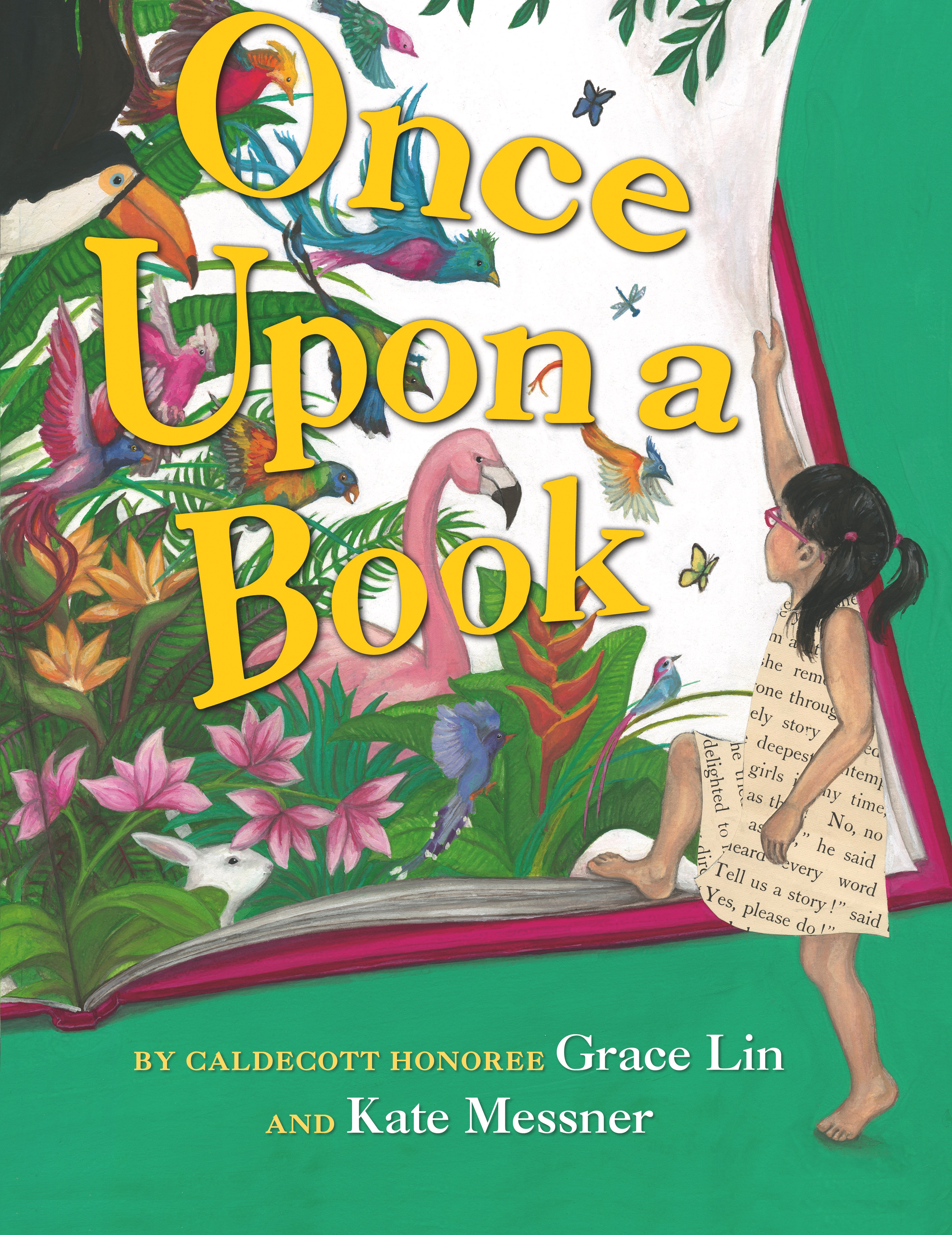 Grace Lin is the recipient of the Children's Literature Legacy Award and is the bestselling author and illustrator of more than 30 books, including A Big Mooncake for Little Star (a Caldecott Honoree); A Big Bed for Little Snow; Where the Mountain Meets the Moon (a Newbery Honoree); The Year of the Dog; and the Ling & Ting series.
Grace Lin is the recipient of the Children's Literature Legacy Award and is the bestselling author and illustrator of more than 30 books, including A Big Mooncake for Little Star (a Caldecott Honoree); A Big Bed for Little Snow; Where the Mountain Meets the Moon (a Newbery Honoree); The Year of the Dog; and the Ling & Ting series.
Kate Messner is a New York Times bestselling author of more than 50 books for young readers. Her award-winning titles include the picture books Over and Under the Snow and The Brilliant Deep; novels Breakout and Chirp; nonfiction The Next President and the History Smashers series; the Ranger in Time adventures; and the Fergus and Zeke easy readers.
Their collaboration, Once Upon a Book (Little, Brown Books for Young Readers) is a "modern folktale" about the joy and transformative power of reading. Here, Lin and Messner tell us about the unusual and fascinating way this book developed.
 |
|
| Grace Lin (photo: Danielle Tait) |
|
Grace Lin: Back in 2019, Children's Book Week was celebrating its 100th anniversary. As part of the celebration, Every Child a Reader decided to create a 12-artist collaborative poster, and I was SO honored that they asked me to be one of them! It's always been a dream of mine to do a Children's Book Week poster, so even though it was a bit of a squeeze to put it on the schedule I knew I had to do it.
It was also an opportunity to push my art in a direction I had been experimenting with. In A Big Mooncake for Little Star, I began using a "fadeway" style of art, where the character's figure is defined solely by the pattern of their clothing. (You can learn more about it here). Now, I wanted to see if I could make the fadeaway work even without the clothing pattern.
This felt particularly appropriate, as part of the assignment for the Book Week poster was to show a character reading. To me, reading is such an immersive experience--how many times do we "disappear" into a book?
So, using my daughter as my muse (as I often do), I painted an image of a girl walking while reading (something both my daughter and I are guilty of), "fading away" into her elaborate chinoiserie wallpaper--the exotic birds of her wallpaper just as interested in her book as she is. You can see it here.
And I have to say, when I was finished, I was really happy with it!
I definitely wanted to do more than this one image, but by then the deadline (I was writing Mulan: Before the Sword) that was breathing down my neck had come to roost, and I had no brainspace or time to delve deeper.
But I also couldn't bear to put it quietly away. So, as kind of an impulsive long shot act of creative desperation, I posted the image to a couple of writer's groups I belong to. "Anyone have an idea for a story to go along with this image?" I asked.
 |
|
| Kate Messner (Andy Duback Photography) |
|
Kate Messner: When I saw Grace's gorgeous art in my feed, my first thought was that I wanted to live in that painting. It was so inviting! I loved the lush green forest and the birds, and of course, the book caught my attention, too. I was busy that day--on deadline, like almost always--so at first, my only response was to post a quick comment ("This is stunning, Grace!!") and get back to work. But I couldn't stop thinking about Grace's art, and it wasn't long before an inkling of a story started following me around. I went back to the post and left a comment with a possible way into that magical world of the painting. I wrote:
"It was cold and snowing sideways but Mae was tired of boots.
So she pulled off her woolen socks and put on her most summery dress. She found the warmest, sunshiniest book on the shelf.
'Once upon a time, there was a girl,' she read to the wallpaper birds. 'A girl who wished for lush green forests where even the morning dew was warm.'
'That sounds like our forest,' said the bird reading over her shoulder. 'Come in...' "
Grace asked me to keep going but that flash of inspiration was short-lived! Over the next week, though, I worked my way through a very rough draft and sent it along to Grace.
Lin: I was so glad to see it! I read it and knew Kate had something great, but I wanted to add something more. I put her story on the back burner of my subconscious and sometime later--probably after I finished the novel--my brain said, "Make it like The Stonecutter!"
The Stonecutter is a very famous Asian folktale where a stonecutter is unhappy with his lot in life and wishes to be a rich man, so the gods make his wish come true. However, soon after, he is unhappy being a rich man and longs to be someone else. His wish is granted, but the Stonecutter soon yearns for more and more. While this does not seem to portend well for the Stonecutter, there's a happy ending, as he ends up where he started and is quite satisfied. To me, this idea, this theme of "what you truly want is what you actually already have" is the spirit of the book. Once I was able to grasp that, the story was like puzzle pieces coming together to me.
I made some light edits locking in that theme (it was already headed there anyway) and sent them to Kate. From there it was pretty collaborative.
Messner: Grace and I continued revising together in Google docs throughout the editing and illustration process, tweaking a line here, trimming a line there to balance text with art, and making sure this story would sweep readers up in the world of our book the same way our protagonist disappears into her own story. So often, people get the idea that picture books are easier than novels because they're shorter, but if anything, it's the opposite. The economy of language is more like writing poetry, and every word matters so much.
It was magical to see this book come together. I've always adored Grace's illustrations, and I'd fallen in love with this piece in particular, so it was a joy to work with her. I love the way Once Upon a Book turned out. Grace's illustrative style manages to feel classic and utterly fresh at the same time.
I honestly can't imagine spending the months between 2019 and 2023 working on a timelier story. Not long after this project sold to Little, Brown Books for Young Readers, the Covid-19 pandemic was well underway, and we were all feeling that sense of confinement and restlessness that our character feels in the book. Have we ever needed stories in our lives more than we did during these years? Our beloved books were our escape from the lockdown, from the drudgery and fear of those early days of the pandemic. It felt like such a gift to spend those months working on a project that honors the transformative power of stories.
Book Candy
Book Candy
The New York Public Library has acquired the archives of Joan Didion and John Gregory Dunne."
---
Author Christy Edwall chose her top 10 imaginary journeys in literature for the Guardian.
---
LEGO has released "the most elaborate Lord of the Rings set: a 6,167-piece Rivendell," Open Culture reported.
---
The Abbey Library of Saint Gall in St. Gallen, Switzerland, "is not only one of the oldest collections in Europe, but also possibly the most beautiful," Atlas Obscura noted.
Rediscover
Rediscover: David Harris
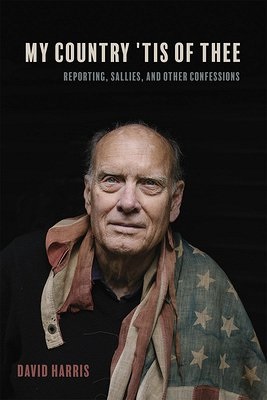 David Harris, the activist and journalist "who in the late 1960s became a national figure for encouraging young men to resist being drafted to serve in the Vietnam War, and who went to jail after refusing the draft himself," died February 6 at age 76, the New York Times reported. When Harris was drafted in 1968, he refused to report for induction and was almost immediately indicted by federal authorities. He was convicted in 1969, sentenced to three years in federal prison, and served 20 months.
David Harris, the activist and journalist "who in the late 1960s became a national figure for encouraging young men to resist being drafted to serve in the Vietnam War, and who went to jail after refusing the draft himself," died February 6 at age 76, the New York Times reported. When Harris was drafted in 1968, he refused to report for induction and was almost immediately indicted by federal authorities. He was convicted in 1969, sentenced to three years in federal prison, and served 20 months.
Harris eventually wrote a letter to Jann Wenner, the publisher of Rolling Stone magazine, offering to sell him a series of antiwar essays. Wenner suggested instead a profile of Ron Kovic, a Marine whose battlefield injuries in Vietnam had left him unable to use his legs, and who went on to be a prominent antiwar activist. The article, "Ask a Marine," ran in 1973 and launched Harris's second career as a magazine journalist and author. He spent the next five years writing for Rolling Stone and in 1978 became a contributing writer for the New York Times Magazine. A decade later, he left the magazine to write books full time. Kovic would later write his own autobiography, Born on the Fourth of July.
Harris published several investigative books about sports, politics and the environment, including I Shoulda Been Home Yesterday: Twenty Months In Prison for Not Killing Anybody (1976); The Last Stand: the War Between Wall Street and Main Street Over California's Ancient Redwoods (1996); Our War: What We Did in Vietnam and What It Did to Us (1996); and, most recently, My Country 'Tis of Thee: Reporting, Sallies and Other Confessions (2020).
Read what writers are saying about their upcoming titles


